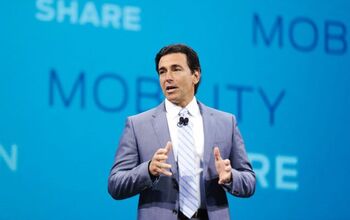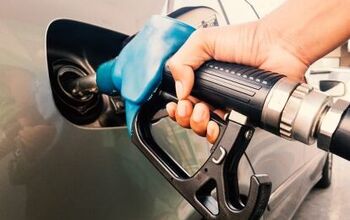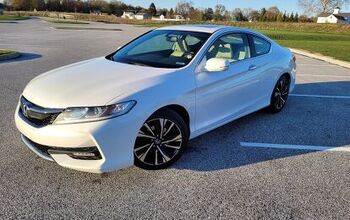Will Trump's Fuel Economy Rollback Cost Jobs?

Center-left political/culture magazine The Atlantic dropped an interesting piece onto the Web Tuesday. In it, author Robinson Meyer lays out a case, based in part on the Trump administration’s own writings, that the fuel economy rollback approved in late March will actually cost jobs and reduce the amount Americans drive.
Meyer piggybacks off his previous reporting, suggesting the Department of Transportation froze out the Environmental Protection Agency and the state of California while working on the rollback. He further suggests, by citing passages from the 2,000-page report the administration prepared on the rollback (officially dubbed Safer Affordable Fuel Efficient Vehicles, or SAFE), that 13,500 automotive-related jobs will be lost.
He also cites the report to suggest that cars will cost more, climate change will be made worse (and people will die because of that), and that Americans will drive less. Meyer’s piece notes that if one averages out the four cost-benefit analyses in the report, you get a net negative of $3 billion. He quotes one academic who says Trump’s numbers are wrong, but even if they weren’t, the new rules would have costs outweighing the benefits.
Meyer also makes mention of errors in the rollback proposal, including what he describes as “backward” math that somehow made the Obama administration’s stricter rules appear to lead to less-safe roadways.
I’m no proponent of Trump’s rollback, or rolling back the Obama rules in general, although as other TTACers have pointed out in our Slack discussions, the Obama rules had flaws that inadvertently incentivized automakers to concentrate on building crossovers with improved fuel efficiency as opposed to investing in and marketing high-mpg small cars that were already in their fleets. Some of these fuel-efficient cars disappeared from brands’ lineups, as they were costlier to build and/or less profitable than crossovers, and crossover-crazed shoppers seemed to notice fuel-economy gains in those vehicles while ignoring the compact sedan that achieved an even higher mpg rating.
Automakers got themselves into a bit of a regulatory pickle here by not being careful what they wished for. Whether the Obama-era rules truly were too onerous to achieve, or automakers simply wanted looser rules to reduce costs, they ended up with a set of rules that may do more harm than good – if Meyer and the critics he quoted are correct, and if the rule isn’t tossed aside by federal courts under the Administration Procedure Act due to its failure to pass a cost/benefit analysis.
This is a regulatory process that bears watching – especially since the rollback is supposed to start with 2021 model-year vehicles. Of course, the disruption caused by the coronavirus is already delaying launches of at least some of those cars, trucks, and crossovers. That adds an extra element of intrigue to an already important debate.
I don’t know if Meyer is right – I haven’t yet spent my copious quarantine free time digging through the 2,000-page document. Blame Netflix. One thing that does make sense: If automakers don’t need to invest in certain fuel-saving tech, that could reduce certain needs for labor, and possibly lead to fewer jobs.
If Meyer is correct, automakers may really have cause to remember that when it comes to this particular presidential administration, even seemingly straightforward regulatory change can take a twist into the twilight zone.
[Image: Shutterstock user hxdbzxy]

Tim Healey grew up around the auto-parts business and has always had a love for cars — his parents joke his first word was “‘Vette”. Despite this, he wanted to pursue a career in sports writing but he ended up falling semi-accidentally into the automotive-journalism industry, first at Consumer Guide Automotive and later at Web2Carz.com. He also worked as an industry analyst at Mintel Group and freelanced for About.com, CarFax, Vehix.com, High Gear Media, Torque News, FutureCar.com, Cars.com, among others, and of course Vertical Scope sites such as AutoGuide.com, Off-Road.com, and HybridCars.com. He’s an urbanite and as such, doesn’t need a daily driver, but if he had one, it would be compact, sporty, and have a manual transmission.
More by Tim Healey
Latest Car Reviews
Read moreLatest Product Reviews
Read moreRecent Comments
- Redapple2 Used to watch F 1 a great deal. Now? F1 Random thoughts:1 Silly rules bug me. Must use 2 types of tire. Cant refuel. Drag reduction can only be used in certain areas of the track and only if you are so close to the car in front.2 Passing is rare. Pole sitter wins a high % of the time.3 A new team can only start in F1 if they get the blessing of the overlords. Evil gm Vampire was barred. How about this. Anybody with a car that meets the construction rules can try. If your speed qualifies and you pay the entry fee. You re in. So is anybody else. 4 I tune in for Martin Brundle's grid walk. In my life, it s must see tv. But he is often bumped or cancelled. Grid walk takes place 1 out of 3 or 4 races.5 So, because of this utter bull sheet and other points, I ve migrated to IMSA and MotoGP. I might catch a summary on the youtube.
- Redapple2 I retract my comments and apologize.
- Flashindapan I always thought these look nice. I was working at a Land Rover dealership at the time the LR3 came out and we were all impressed how much better it was then the Discovery in just about every measurable way.
- Bd2 If I were going to spend $ on a ticking time bomb, it wouldn't be for an LR4 (the least interesting of Land Rovers).
- Spectator Wild to me the US sent like $100B overseas for other peoples wars while we clammer over .1% of that money being used to promote EVs in our country.


































Comments
Join the conversation
Agreed that the rollback was a mistake. Mileage standards should have been eliminated. Consumers should decide what mileage works for them. Automakers can adjust their products to suit the consumer. "Peak oil" was just another lie, like catastrophic man-made global warming. The world is awash in hydrocarbons, and more is being discovered all the time. The government should get out of the MPG business.
Agreed, consumers are going to decide what vehicles they want and most likely that will be a truck or truck like vehicle. Why drive anymore customers away from automobiles which is what these standards will do.